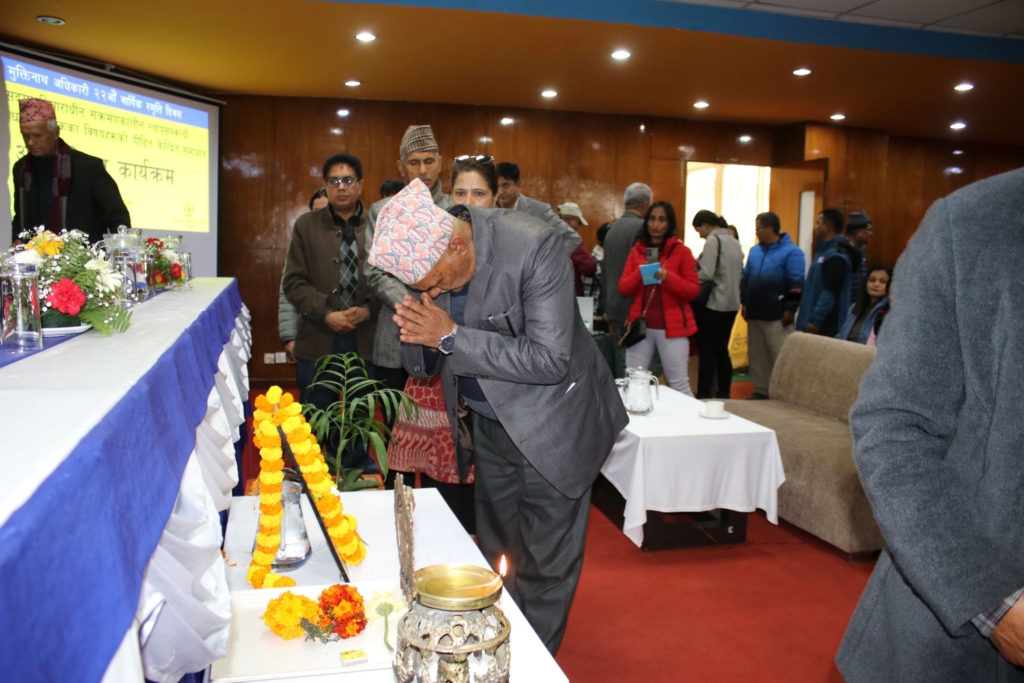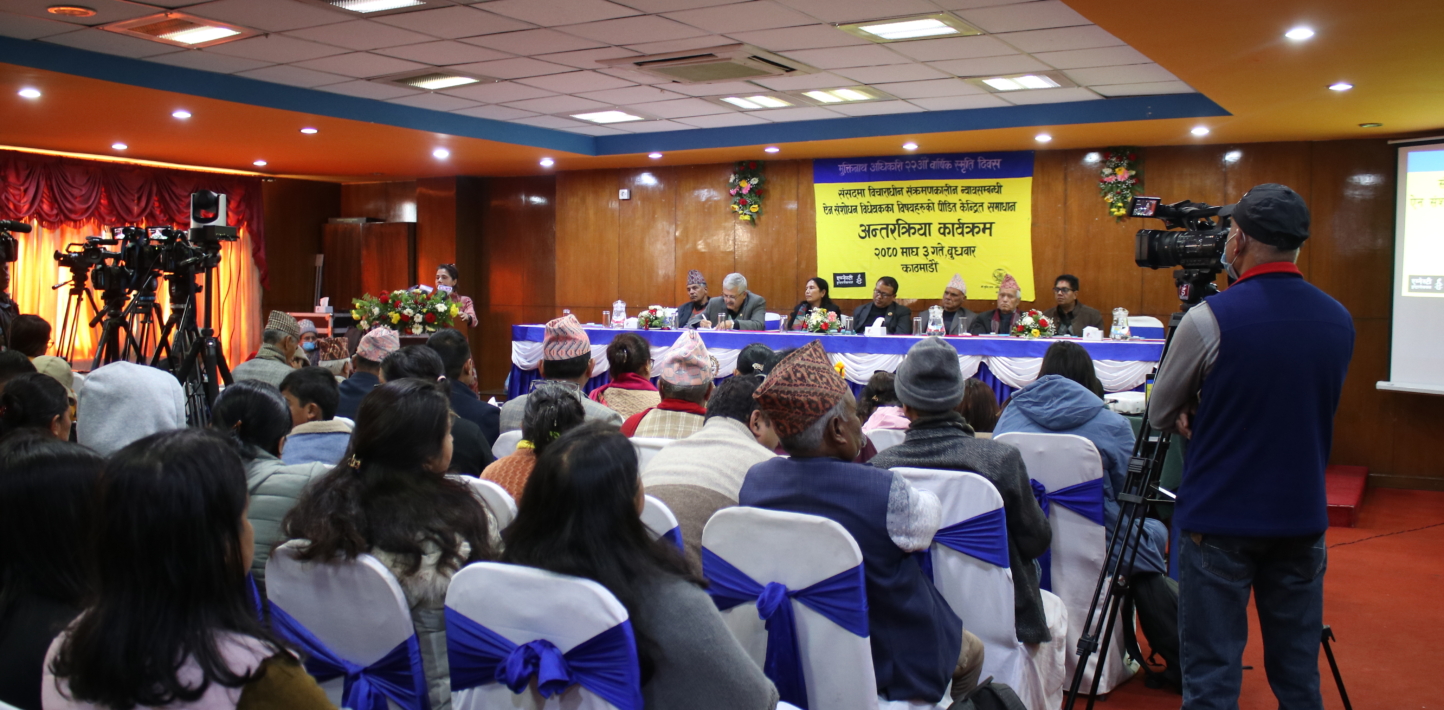Ever since Muktinath Adhikari, an educator and activist, was brutally murdered by the then Communist Party of Nepal (Maoist) cadres in Lamjung for allegedly refusing to pay donations on 16 January 2002 (BS 2058 Magh 3), Amnesty International Nepal and Muktinath Adhikari Memorial Foundation have been observing Magh 3 as the day to honour his life and to shout out to the authorities for their failure to serve truth and justice to the victims.
This January 17 was the 22nd anniversary of this gruesome incident. But two decades on, his family still awaits justice for his murder.
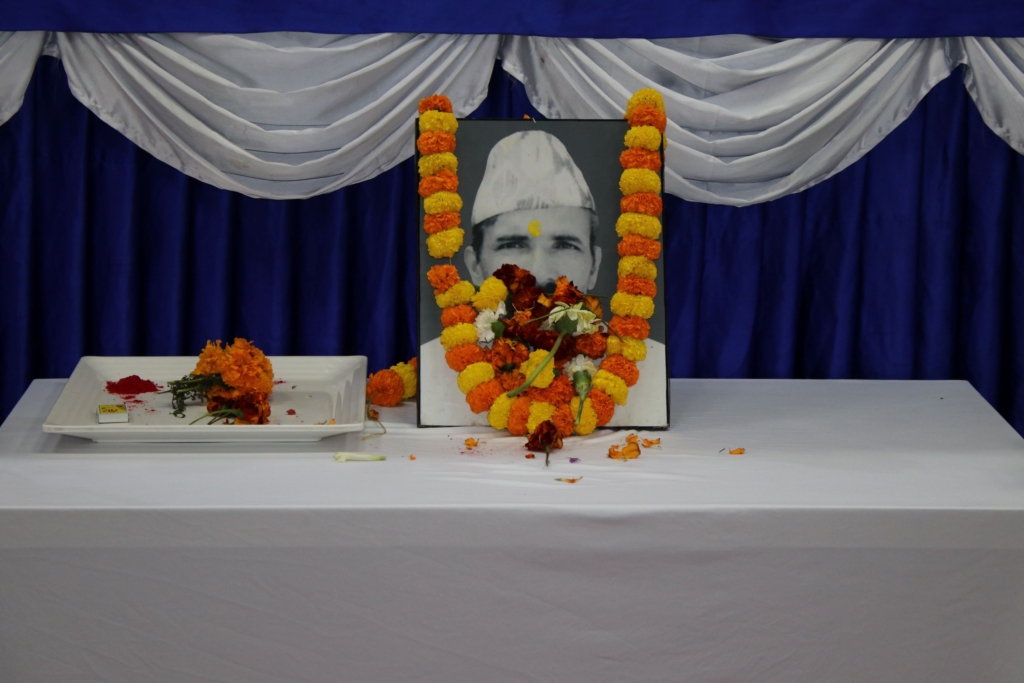
“It has been 22 years since my father was killed, and yet there has been no investigation and no sign that justice will be delivered to our family. It deeply saddens me that despite fighting for justice for all decades, I have failed my father, and the government has failed us all,” said Suman Adhikari, Muktinath’s eldest son, at the memorial programme held on 17 January at the Alfa House in Baneshwar, Kathmandu.
“In the midst of politics and selfish interests, thousands of us have suffered for far too long from the indifference of the government. It’s both painful and shameful that the victims continue to suffer without truth, justice and reparations for all these years,” he added.
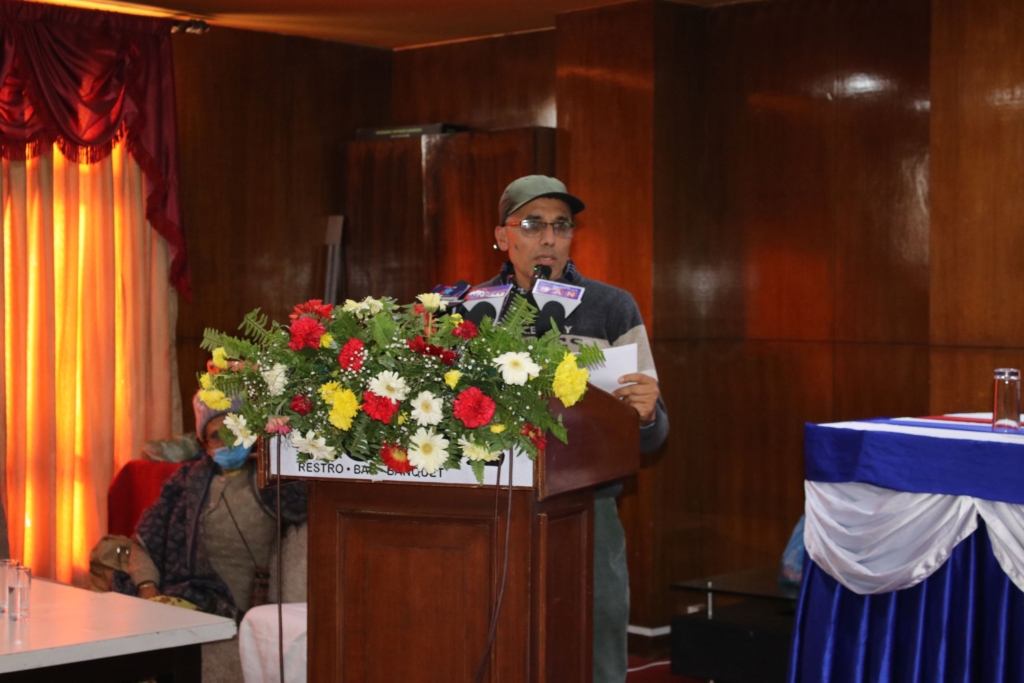
The brutal murder of Muktinath Adhikari is emblematic of the several thousand human rights violations committed by both the State and CPN (Maoist) during Nepal’s decade-long conflict. He was abducted by a group of Maoist cadres from a classroom, taken to a nearby hillock, tied to a tree and then killed by stabbing and shooting. At the time, Adhikari was serving as the Principal at Panini Sanskrit School in Duradanda, and was also the coordinator of a local group of Amnesty International Nepal in Lamjung.
“In the decade-long conflict, thousands of people were killed by both sides, many of them teachers like Muktinath Adhikari. Today it has been 22 years since he was brutally murdered and yet his family, with thousands others, are nowhere close to getting justice,” said Nirajan Thapaliya, director of Amnesty International Nepal, at the ceremony.
Following a memorial ceremony, where Muktinath Adhikari’s wife Indira Adhikari lit a light in his memory and paid homage, different experts who have worked in the sphere of transitional justice spoke on the topic entitled “संसदमा विचाराधीन संक्रमणकालीन न्यायसम्बन्धी ऐन संशोधन विधेयकका विषयहरूको पीडित केन्द्रित समाधान” (Victim-Centric Resolution to the Issues of the Transitional Justice Act Amendment Bill Pending in the Parliament).
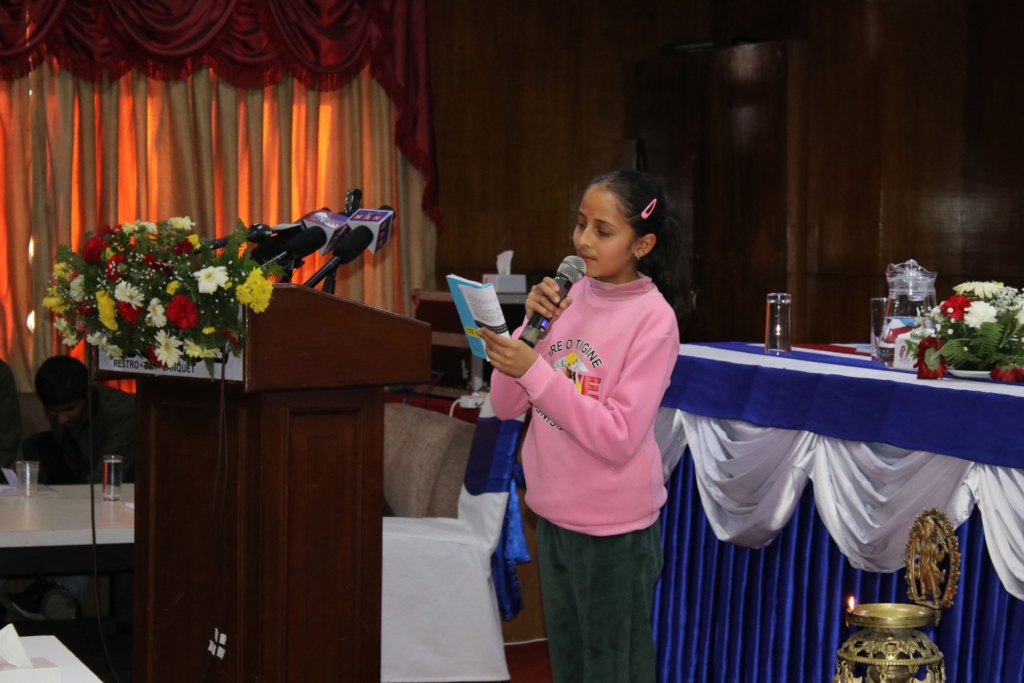
Victims and activists have long been consistently calling out for speedy resolution of the truth process which remains stalled even after almost 18 years of the end of the conflict. The discussion focused on the stalled justice process, focusing primarily on the Bill for the Amendment of the Investigation of Enforced Disappeared Persons, Truth and Reconciliation Commission Act (2014), widely referred to as the transitional justice bill, which was presented to parliament on March 19, 2023, and is still pending. Victims and human rights organizations believe that the bill, if adopted as currently formulated, will be inadequate in prosecuting those who have committed human rights abuses under international law and will be enough to provide justice to victims and their families.
“The Comprehensive Peace Agreement that ended the war in 2006 and was signed by all political parties was created on the foundation that the State would deliver truth, justice, accountability and reconciliation to victims of the conflict; however, successive governments have blocked any and all efforts that aimed to do so,” said Mandira Sharma, Senior International Legal Advisor at the International Commission of Jurists. She added that the government has also failed to adequately consult conflict victims to include their key demands which goes against the very idea of delivering justice to victims.
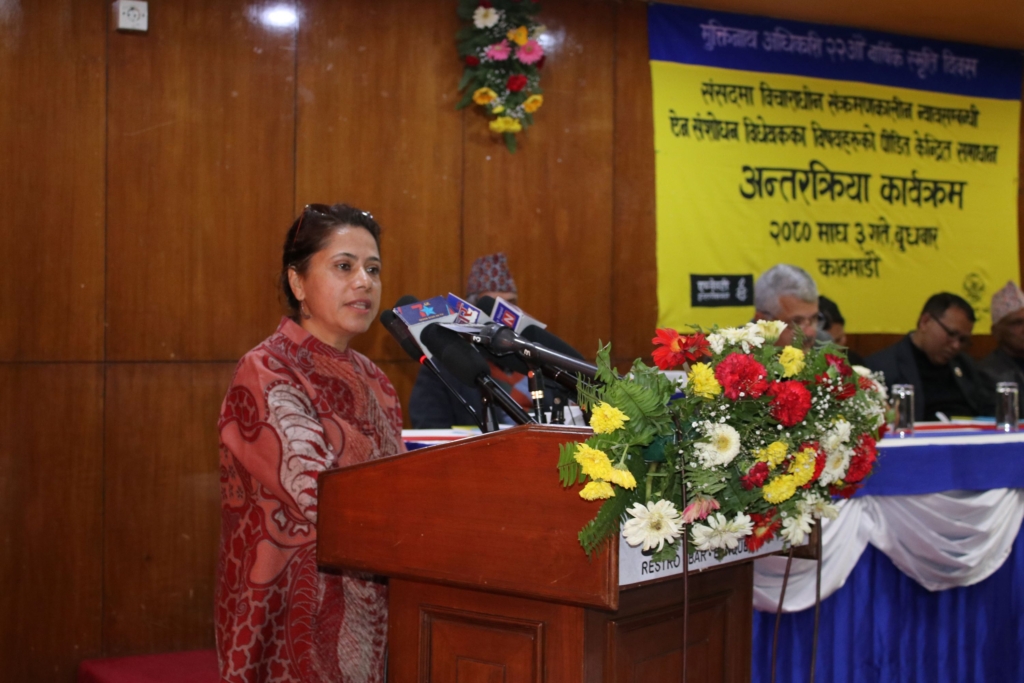
Other special guests who expressed their concerns with the bill included Hon. Ranju Kumari Jha, Member of the Law, Justice and Human Rights Committee of the Parliament; Hon Maina Karki, Member of House of Representatives; Agni Kharel, former Minister for Law and Justice and Standing Committee Member of the CPN-UML; Murari Prasad Kharel, Secretary, National Human Rights Commission; Purshottam Dahal, journalist; Sushil Pyakurel, former commissioner of the National Human Rights Commission; Shri Krishna Koirala, Mayor, Sundar Bazar Municipality, among others.
The memorial programme was attended by the members of the Adhikari family, relatives, activists, people’s representatives, journalists and political leaders from different parties, journalists, and civil society members.
